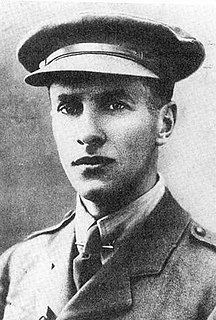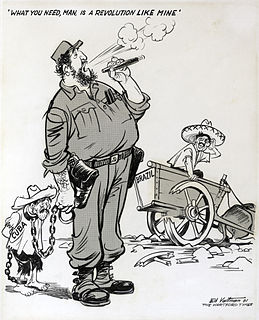
The Pulitzer Prize is an award for achievements in newspaper, magazine, online journalism, literature and musical composition within the United States. It was established in 1917 by provisions in the will of Joseph Pulitzer, who had made his fortune as a newspaper publisher and is administered by Columbia University. Prizes are awarded yearly in twenty-one categories. In twenty of the categories, each winner receives a certificate and a US$15,000 cash award. The winner in the public service category is awarded a gold medal.

The New York Times is an American daily newspaper based in New York City with a worldwide readership. Founded in 1851, the Times has since won 132 Pulitzer Prizes, and has long been regarded within the industry as a national "newspaper of record". It is ranked 18th in the world by circulation and 3rd in the U.S.

The Pulitzer Prize for Editorial Writing is one of the fourteen American Pulitzer Prizes that are annually awarded for Journalism. It has been awarded since 1917 for distinguished editorial writing, the test of excellence being clearness of style, moral purpose, sound reasoning, and power to influence public opinion in what the writer conceives to be the right direction. Thus it is one of the original Pulitzers, for the program was inaugurated in 1917 with seven prizes, four of which were awarded that year. The program has also recognized opinion journalism with its Pulitzer Prize for Editorial Cartooning from 1922.

The Pulitzer Prize for Public Service is one of the fourteen American Pulitzer Prizes annually awarded for journalism. It recognizes a distinguished example of meritorious public service by a newspaper or news site through the use of its journalistic resources, which may include editorials, cartoons, photographs, graphics, video and other online material, and may be presented in print or online or both.

Walter Duranty was an Anglo-American journalist who served as Moscow bureau chief of The New York Times for fourteen years (1922–1936) following the Bolshevik victory in the Russian Civil War (1918–1921).

The Detroit Free Press is the largest daily newspaper in Detroit, Michigan, US. The Sunday edition is titled the Sunday Free Press. It is sometimes referred to as the Freep. It primarily serves Wayne, Oakland, Macomb, Livingston, Washtenaw, and Monroe counties.

The Detroit News is one of the two major newspapers in the U.S. city of Detroit, Michigan. The paper began in 1873, when it rented space in the rival Detroit Free Press's building. The News absorbed the Detroit Tribune on February 1, 1919, the Detroit Journal on July 21, 1922, and on November 7, 1960, it bought and closed the faltering Detroit Times. However, it retained the Times' building, which it used as a printing plant until 1975, when a new facility opened in Sterling Heights. The Times building was demolished in 1978. The street in downtown Detroit where the Times building once stood is still called "Times Square." The Evening News Association, owner of The News, merged with Gannett in 1985.

The Providence Journal, colloquially known as the ProJo, is a daily newspaper serving the metropolitan area of Providence, Rhode Island, and is the largest newspaper in Rhode Island. The newspaper was first published in 1829 and is the oldest continuously-published daily newspaper in the United States. The newspaper has won four Pulitzer Prizes.
Sig Gissler is a former professor of journalism at Columbia University and the former administrator of the Pulitzer Prizes.
The following are the Pulitzer Prizes for 1933.

The following are the Pulitzer Prizes for 1951.

The following are the Pulitzer Prizes for 1962.
The following are the Pulitzer Prizes for 1964.
The following are the Pulitzer Prizes for 1968.
The Pulitzer Prizes for 1975, the 59th annual prizes, were ratified by the Pulitzer Prize advisory board on April 11, 1975, and by the trustees of Columbia University on May 5. For the first time, the role of accepting or rejecting recommendations of the advisory board was delegated by the trustees to the university's president, William J. McGill; the change was prompted by the desire of the trustees to distance themselves from the appearance of approval of controversial awards based on work involving what some considered to be illegal leaks, such as the 1972 Pulitzer Prize awarded for the publication of the Pentagon Papers.

The Pulitzer Prize for Correspondence was awarded from 1929 to 1947.
Mark Louis von Hagen was an American military historian who taught Russian, Ukrainian, and Eurasian history at Arizona State University. He was formerly at Columbia University. He was commissioned by The New York Times to write an independent assessment of Times correspondent Walter Duranty and his reporting on the Soviet Union after the newspaper received a letter from the Pulitzer Prize Board regarding allegations of Duranty's role in the cover-up of the Holodomor in Soviet Ukraine.

Denial of the Holodomor is the false claim that the 1932–1933 Holodomor, a large-scale, man-made famine in Soviet Ukraine, did not occur or diminishing the scale and significance of the famine. Officially the Soviet Union denied the famine and suppressed information about it from its very beginning until the 1980s. This was also circulated by some Western journalists and intellectuals. It was echoed at the time of the famine by some prominent Western journalists, including The New York Times' Walter Duranty.
Jeffrey Taylor is an American journalist who won a Pulitzer Prize.








